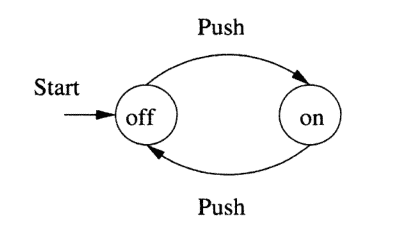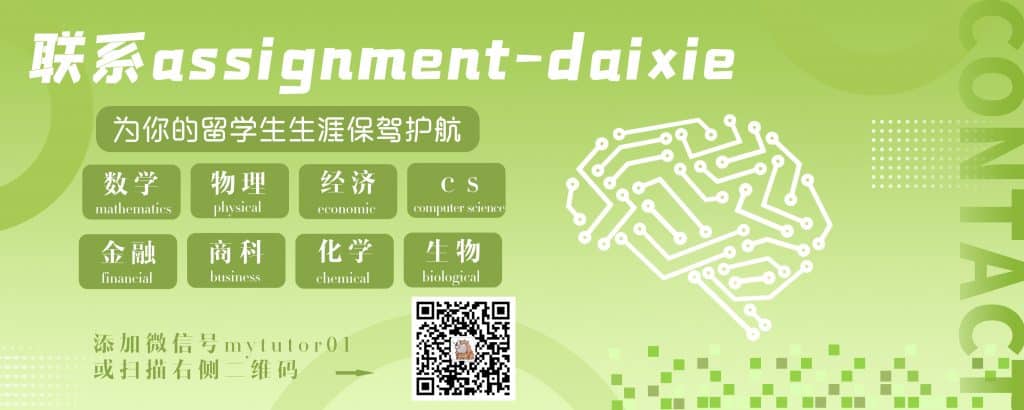这是一份nottingham诺丁汉大学COMP2012作业代写的成功案例

Let the value of $A$ be $x$.
$$
\left.n=2, \frac{1}{3}+\frac{1}{4}-x>0 \quad \text { (Assume } \quad x<\frac{7}{12}\right) $$ Inductive Hypothesis: $$ \text { For } n=k, \frac{1}{k+1}+\frac{1}{k+2}+\cdots+\frac{1}{2 k}-x>0
$$
Inductive Step:
$$
\begin{gathered}
\text { For } n=k+1, \frac{1}{k+2}+\frac{1}{k+3}+\cdots+\frac{1}{2(k+1)}-x \
=\left[\frac{1}{k+1}+\frac{1}{k+2}+\cdots+\frac{1}{2 k}\right]+\frac{1}{2 k+1}+\frac{1}{2 k+2}-\frac{1}{k+1}-x \
\text { (Adding and substracting } \left.\frac{1}{k+1}\right)
\end{gathered}
$$
$$
=0
$$

COMP2009 COURSE NOTES :
Let $P(n)=1^{2}+2^{2}+\cdots n^{2}=\frac{n(n+1)(2 n+1)}{6}$
Basis: For $n=1, P(1)=1^{2}=1$ (on calculating LHS)
$$
R H S=P(1)=\frac{1(1+1)(2+1)}{6}=\frac{(1)(2)(3)}{6}=1
$$
Therefore $P(1)$ is true.
Inductive Hypothesis:
$$
P(K)=1^{2}+2^{2}+\cdots k^{2}=\frac{k(k+1)(2 k+1)}{6} \text { is true. }
$$
Inductive Step: We claim that
$$
P(K+1)=1^{2}+2^{2}+\cdots+(k+1)^{2}=\frac{(k+1)(k+2)(2 k+3)}{6} \text { is true. }
$$